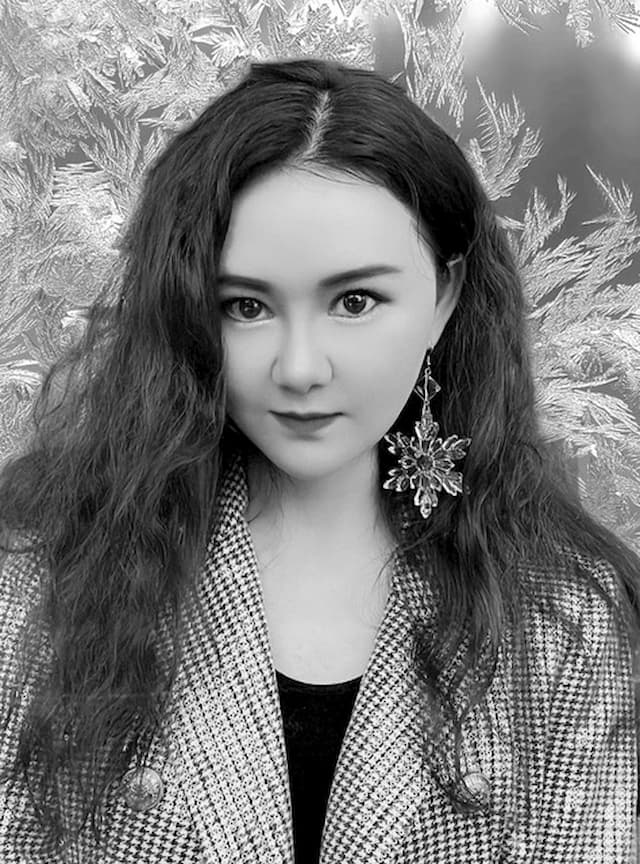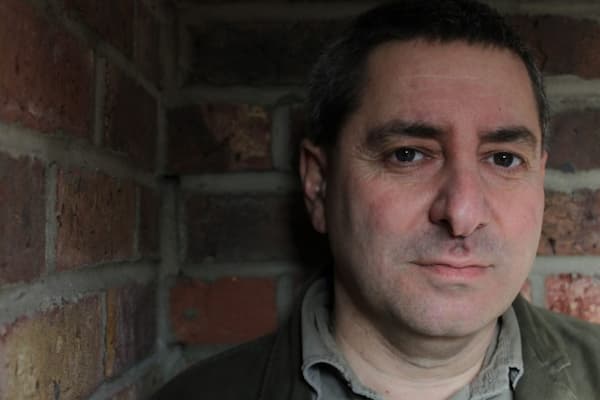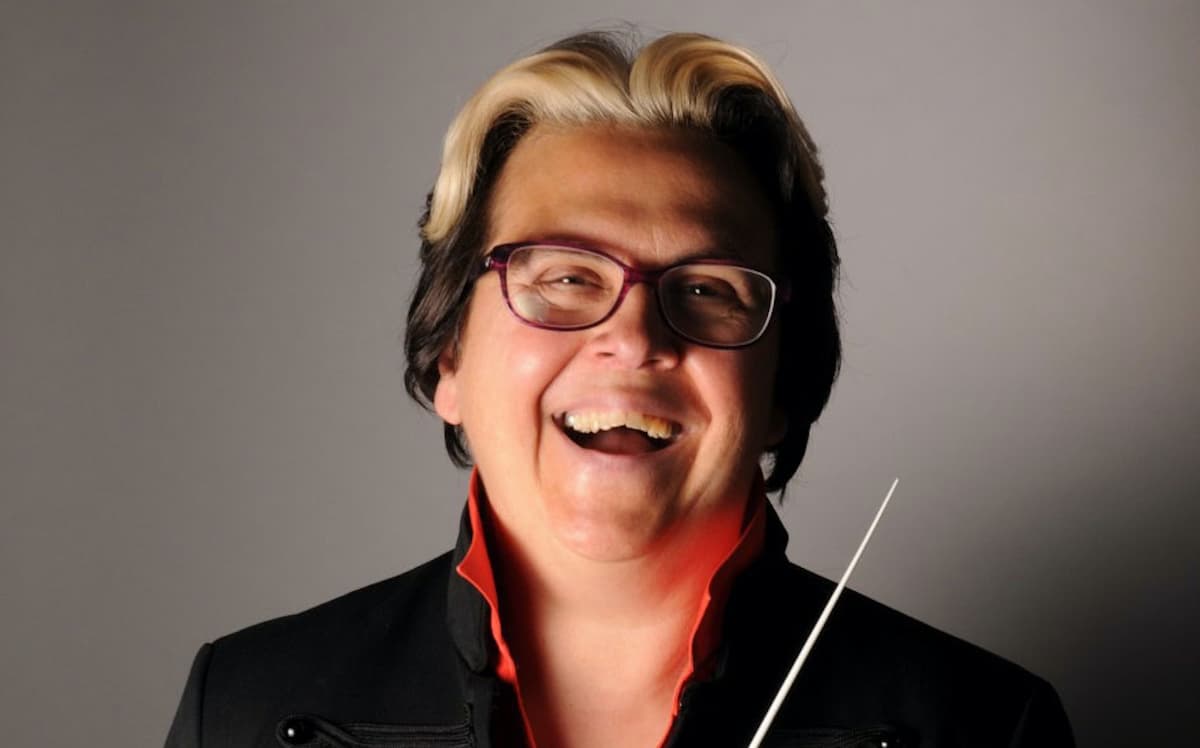Yiguo Yan is an accomplished composer, poet, and playwright based in Shanghai, where she serves as a composer for the Shanghai Opera House. Her compositions have gained international recognition and have been honored with prestigious awards. In particular, her original librettos in Chinese and English for her operas have secured first prizes in esteemed international composition competitions in China, Vienna, and the USA. Furthermore, her poetry has been celebrated and acclaimed both in Chinese and international literary circles. I had the pleasure of meeting Yiguo during our time as graduate students at the University of Missouri-Kansas City, and since then, I have been following her inspiring posts about her poetry and compositions on social media. Let’s learn about her fascinating world through this interview!

Yiguo Yan
Are there particular events/music that made you interested in writing operas?
Yes, there are. When I studied at Shanghai Music Middle School, I first read avant-garde dramas/plays by Samuel Beckett and Sarah Kane. I was obsessed with their works. Their radical experiments of theatrical art have made it more sensitive, profound, and expressive. I felt that when reading such plays, a lot of music related to them automatically comes to my mind. However, due to copyright issues, since they were very recent, I couldn’t just use their plays, so I figured I would write my own librettos and then write operas based on them.
Your compositions include operas in Chinese and English. Do you have different considerations in compositions when dealing with various languages?
Masked Sphinxes:
There is indeed a significant difference between these two languages, but my creative principle is that the literary quality of the libretto should try to reach the level of world literature, that is, the first-class literary works will not shrink in literary quality after being translated into foreign languages. Shakespeare’s tragedies have been translated into over 80 languages, and the quality, ideas, dramatic tension, and artistic beauty are still established in other languages, which is also the first standard I tried to reach, no matter whether I am writing an English or a Chinese opera. And secondly, specifically, when I wrote my first and second chamber operas, I lived in China, so I was more familiar with Chinese because I was surrounded by the language. In addition, there were also considerations for singing styles. For example, a transgender character in my Chinese chamber opera Mirror was performed by a Peking opera tenor, so it would be more reasonable for the entire libretto to be written in Chinese. When I wrote my first English chamber opera, I lived in the United States and I was more familiar with the English-speaking environment, so I wrote it in English. Last summer, I finished my second English chamber opera Masked Sphinxes. The reason I wrote the libretto in English was that many of the pronunciations of “X” and “Sh” in English sounded like “soft noises”, which matched many extended techniques I applied in the piece. I can proficiently use both Chinese and English, and based on qualified librettos, the specific language I chose will depend on the matching between pronunciation and the musical temperament of the libretto.
Are there any of your works inspired by some poems you like?
I love many poets, but when it comes to creativity, I prefer to use my own poems, which will be more original. In the summer of 2011, when I was in residency at Fontainebleau Academy in France as a fellow, I wrote Seven Poems of Colors. The work was based on seven of my short poems, it has seven movements, each of them was recited by a Chinese and an English narrator at the same time. The meaning was synchronous, and the ensemble included piano, string quintet, and six wind chimes (hanging on players’ stands). The musical imagination in this piece is entirely based on poems, they are highly consistent. In addition, my poetry in Chinese will be published this year. Now, I am using music to influence my creative writing to explore new possibilities for Chinese avant-garde poetry.
You have a unique academic journey, having studied music at the prestigious high school affiliated with Shanghai Conservatory and later pursuing your bachelor’s, master’s, and doctoral degrees in composition in the U.S. Could you elaborate on the differences you experienced in your studies between the two Countries? And what changes did you notice when you returned to work at the Shanghai Conservatory?
The Refractions of Light:
Music schools in China and the United States may each have their own strengths, composition majors in China place greater emphasis on basic technical aspects, such as harmony and voice leading, counterpoint, orchestration, and musical form, all of which have a deep level of proficiency in these four fundamental courses; the composition majors in the United States places greater emphasis on comprehensive humanistic literacy, with more emphasis on art courses, anthropology courses, world literature introductions, and comprehensive academic training courses. However, the composition profession is just like creative writing; it has a limited range of skills that can be taught. It relies more on composers/writers to understand and create on their own. Both countries have many talented individuals, whether they place more emphasis on professional skills or aesthetic education in their early learning stages, the ultimate goal is to create works that are technically solid, aesthetically rich, and have unique personalities. I have been studying and living in the United States for 11 years. When I returned to Shanghai Conservatory in 2019, I found that there were more composition competitions and new music festivals developed in China compared to 11 years ago. Therefore, many young composers can stand out through competitions. At the same time, through any fair, competitive activities, some talents will be selected anyway. The same goes for the United States.
Can you share your job in the Shanghai Opera House?
As a young composer at the Shanghai Opera House, I see myself as a pupil. I’ve learned many processes of producing an original opera or a dance drama. By the end of 2025, I’m expected to compose some choral symphonies to coordinate with the completion of the Grand Opera House, a modern-style new opera house on the east coast of Shanghai. Besides composition, sometimes I also write concert reviews and programs for the Shanghai Opera House.
Can you share with us your recent projects?
Ladder of Heaven:
I’ve just submitted a new chamber piece, The Empty Garden, to the Divergent New Music Studio, it will be premiered soon this month by Divergent Trio in Boston. My piano solo, The Floating Light Particles, dedicated to my friend Michelle Nam, will be toured this year by her this summer in Southern America. Also, I will need to finish a piece for a quintet for Piccolo, Clarinet, Violin, Cello, and Piano, similar instrumentation as the Pierrot ensemble, commissioned by the China-Asian New Music Ensemble, to be premiered this Autumn. My chamber opera, Masked Sphinxes, will receive its Taiwan premiere this winter. Most importantly, for the next few months, I’m preparing my first poetry, which includes more than 100 original Chinese poems that will be published by Xiu Wei Press.
Learn more about Yiguo and her works.
For more of the best in classical music, sign up for our E-Newsletter


